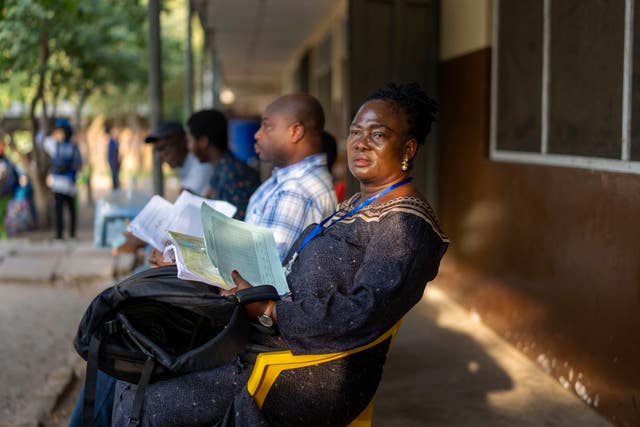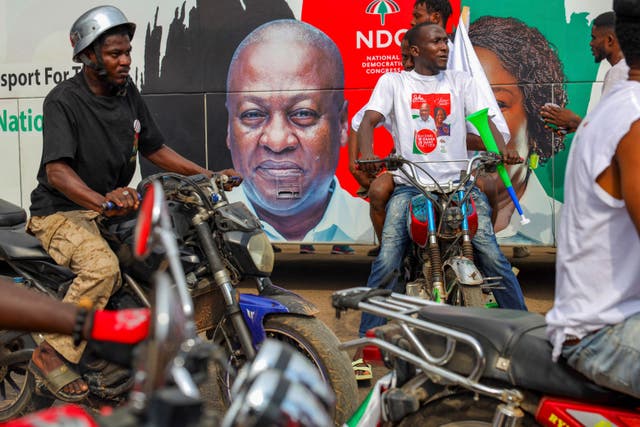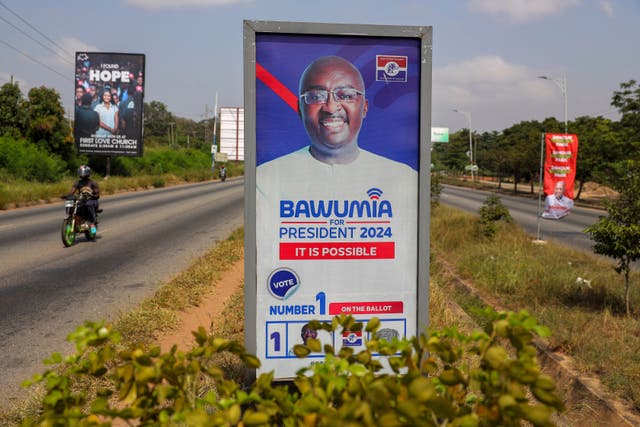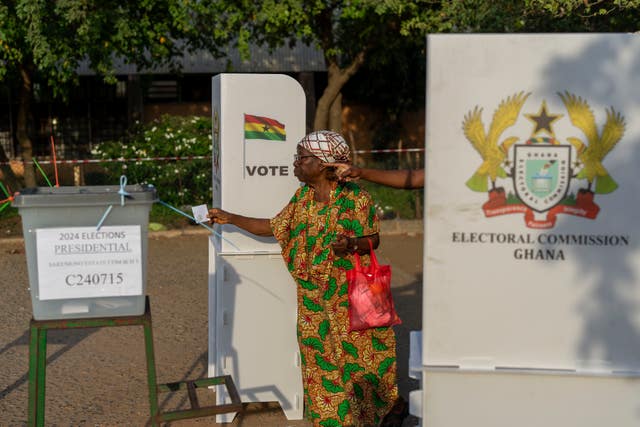Polls open in Ghana amid worst economic crisis in a generation
The gold-rich country has struggled with surging inflation and a lack of jobs.

Polls have opened in a general election in Ghana – a litmus test for democracy in a region shaken by extremist violence and coups.
Some 18.7 million people are registered to vote in presidential and legislative elections but the two main candidates offer little hope for change for the nation.
Ghana used to be a poster child for democracy in the region, but in recent years, it has struggled with a profound economic crisis, including surging inflation and a lack of jobs.

According to an opinion poll released by research group Afrobarometer earlier this year, 82% of Ghanaians feel their country is headed in the wrong direction
Although 12 candidates are running to become Ghana’s next president, Saturday’s election – like previous ones since the return of multi-party politics in 1992 – has emerged as a two-horse race.
Vice President Mahamudu Bawumia is the candidate of the New Patriotic Party (NPP), the ruling party that has struggled to resolve the economic crisis.

The NDC prides itself as a social democratic party, while the ruling NPP tags itself as leaning to the right.
But in fact, analysts and voters said, the programmes of their presidential candidates do not differ in any significant way.
Two hundred and seventy-six members of parliament will also be elected Saturday. The ruling NPP party and the main opposition NDC each have 137 members in the 275-member legislature, with one independent member who has been voting mostly along with the ruling party.
One more constituency will be allowed to vote in this election, bringing the number of deputies to 276.
In their final campaign rallies on Thursday, both candidates made a last push to pitch their political parties as the answer to Ghana’s economic woes.

Mr Mahama, 65, on the other hand, restated his promise to “reset” the country on various fronts. “We need to reset our democracy, governance, economy, finances, agriculture, infrastructure, environment, health sector, and all that we hold dear as a people,” the former president said.
Across the the capital of Accra, the mood for the election has been upbeat in posters and billboards with bikers displaying stunts, political rallies on the streets, election jingles and songs blasting from public speakers.
But the concern for many is also palpable for the key thing at stake: The country’s ailing economy, which has been challenged on various fronts in recent years.
The country defaulted on most of its foreign debt last year as it faced a worsening economic crisis that spiked the price of fuel, food and other essential items.

The chronic challenge of illegal gold mining – known locally as galamsey – has also been a major issue in the campaign and a source of concern for voters, triggering protests and criticism against the outgoing government.
Ghana is Africa’s top gold producer and the world’s sixth largest, but the commodity has been increasingly mined illegally as people become more desperate to find jobs in an economy that has been crumbling.
The mining has polluted rivers and other parts of the environment despite government actions to clamp down on the practice.





